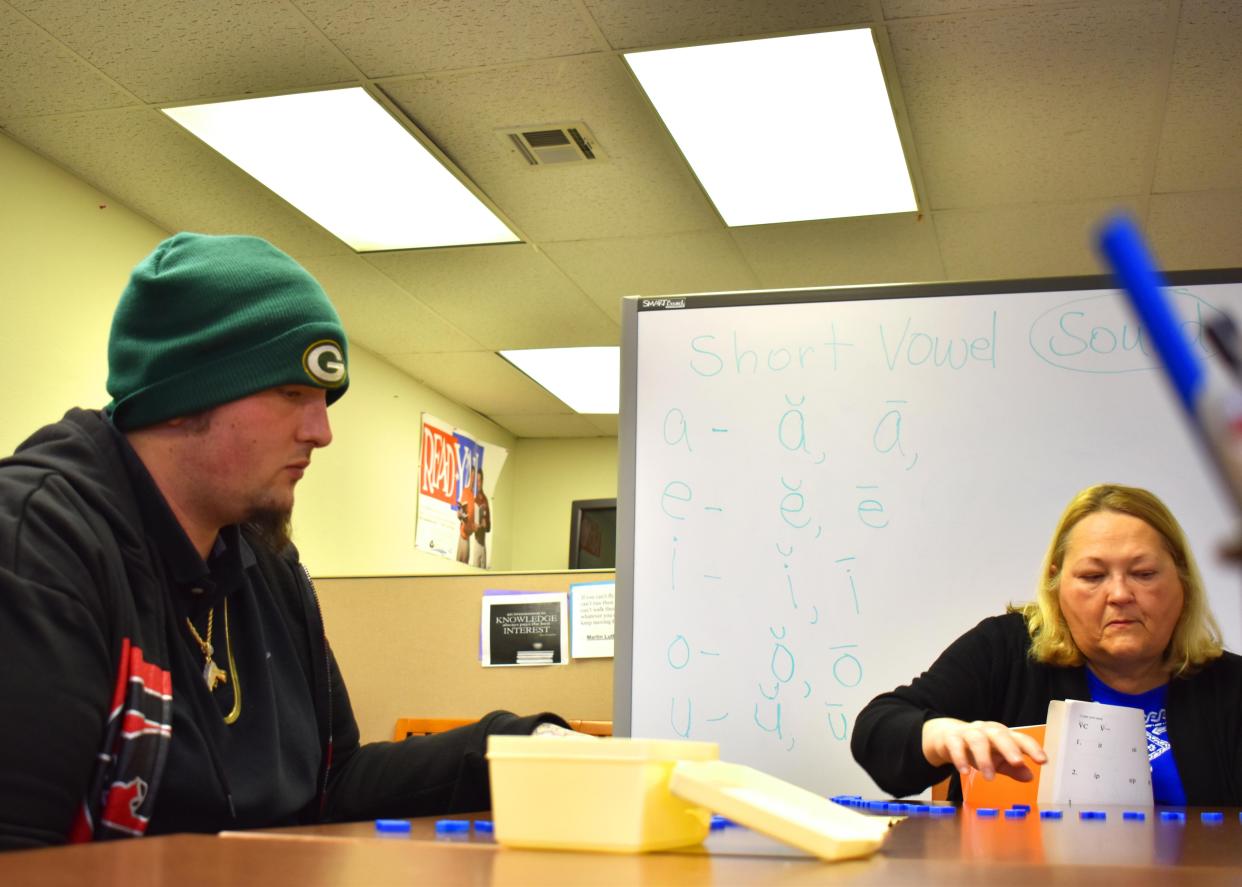UNF grad student: Adult illiteracy in the dyslexic population is the invisible enemy

In a world where reading is often taken for granted, there exists an invisible enemy that is often overlooked among the dyslexic community — adult illiteracy.
Dyslexia is a learning disorder that impacts 1 in 5 people, or 20% of the population. A neurobiological condition like dyslexia presents difficulty in the areas of reading, spelling and learning such things as foreign languages. People often think of dyslexia as only affecting children but the disorder greatly impacts those adults who never received proper instruction and accommodations.
Of the adults in the United States, 54% have below a sixth-grade reading level. Dyslexia is not an indication of intelligence level, and most students who get specialized education and tutoring can excel in school as well as life. What often stops students or adults from getting the help they need is the social stigma and lack of individualized instruction.
Traditional teaching methods often fail to address the specific challenges faced by dyslexic individuals, leaving them feeling frustrated and discouraged. These individuals often feel like their worth is tied to their ability to read and write, so they would rather avoid the subject than admit they need help. This leads to an adult leaving the school system with a low literacy rate and a future of problems.
Dyslexic adults who have a low reading level may have difficulty getting a job and often feel too self-conscious to apply for growth within the company. They often find it difficult to complete medical forms and learn of medical services in their community, which can lead to worse health outcomes.
Reading is required to be successful in America, and if something stops that development, the person cannot reach their full potential. In the United States, two out of every three students with low reading proficiency by the end of fourth grade will likely end up on welfare or in jail. Adult illiteracy can be prevented with policy and educational changes.
Educators must work on developing specialized literacy programs tailored to the needs of dyslexic adults and children. Educational leaders and policymakers need to implement strategies that focus on empathy and breaking down any stigma surrounding the dyslexia diagnosis.
Letters: Competition with charters may improve education in Duval County schools
Evidence-based programs, such as the Orton-Gillingham approach — an explicit, systematic, data-driven, multisensory approach to phonics — should be implemented in classrooms. Educators and support personnel need professional development opportunities on how to identify and address dyslexia.
They can then provide early interventions, empowering dyslexics to reach their full potential and participate fully in society.
Community organizations and dyslexia advocacy groups need to make early intervention a priority, focus attention on policymakers and school board members to implement specialized dyslexia-focused curriculums. That scenario allows dyslexics to become literate adults, ready for the reading world, when they leave school.
By recognizing the unique challenges faced by dyslexic individuals and implementing targeted interventions, we can break the cycle of adult illiteracy and fight the invisible enemy.

Sarah Powell holds a public health degree with a minor in health education and is pursuing a Master of Public Health at the University of North Florida. With three years of experience as an early educator, she also volunteers with the dyslexic population and is dyslexic herself.
This guest column is the opinion of the author and does not necessarily represent the views of the Times-Union. We welcome a diversity of opinions.
This article originally appeared on Florida Times-Union: Dyslexics become literate adults with policy, educational changes

